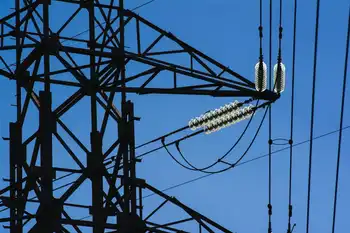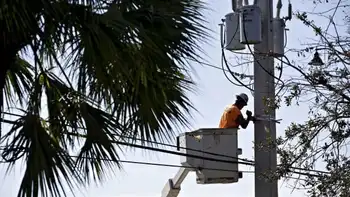Enviros Mixed On Alternative Energy Proposals
CAPE COD, MA -- - Proposed wind farms along the East Coast has caused a divide among environmentalists, who have long advocated the concept of wind power but have been loathe to accept the windmills into their communities.
Cape Wind Associates, the company that wants to build the first U.S. offshore wind energy facility near Cape Cod, Mass., has faced considerable opposition as it moves through the state and federal permitting process, officials said. Opponents protest the potential noise and appearance of the wind farm and say the turbines may kill migrating birds. Supporters of the project applaud its potential to generate clean energy from a renewable source (Greenwire, January 2003).
Environmental attorney Robert F. Kennedy Jr., whose family has a summer home within miles of the proposed windmills, has spoken out against the endeavor and thereby parted ways with his employer, the National Resource Defense Council, which supports the project. "There are always concerns about local siting that as a national group we have to be sensitive to," said Ashok Gupta of the NRDC. "People have to take some level of responsibility for their energy consumption and say we would be willing to accept a certain level of impact in my own community. Aesthetics is in the eye of the beholder. I think you could convince yourself they're quite beautiful."
A second wind power developer, Winergy LLC, has sought approval from the Army Corps of Engineers for a permit to build a data testing tower 7 miles south of Nantucket, Mass. Eventually, Wingery would like to build 2,137 turbines in six states, company officials said.
"As areas of natural beauty become increasingly scarce, people are seeking such places out to live and retire, as well as for a second-home retreat from the nearby urbanizing landscape," said wind power consultant Dan Boone. "These folks believe they have more than a right to oppose industrial facilities which seek to homogenize or domesticate an otherwise wild or cherished landscape."
Wind power developers have been moving quickly through the permit process in the hope of securing approval before the expiration of a tax credit, which grants wind farms and other eligible renewable electricity producers a credit of 1.8 cents per kilowatt-hour. The Clinton-era tax credit expires at the end of this year, but the Bush administration is expected to renew it. The Department of Energy supports a plan to continue to increase U.S. reliance on wind power, DOE officials said.
Related News

Kenya on Course for $5 Billion Nuclear Plant to Power Industry
KENYA - Kenya’s nuclear agency submitted impact studies for a $5 billion power plant, and said it’s on course to build and start operating the facility in about seven years.
The government plans to expand its nuclear-power capacity fourfold by 2035, the Nuclear Power and Energy Agency said in a report on the National Environment Management Authority’s website. The document is set for public scrutiny before the environmental watchdog can approve it, and pave the way for the project to continue.
President Uhuru Kenyatta wants to ramp up installed generation capacity from 2,712 megawatts as of April to boost manufacturing in East…




